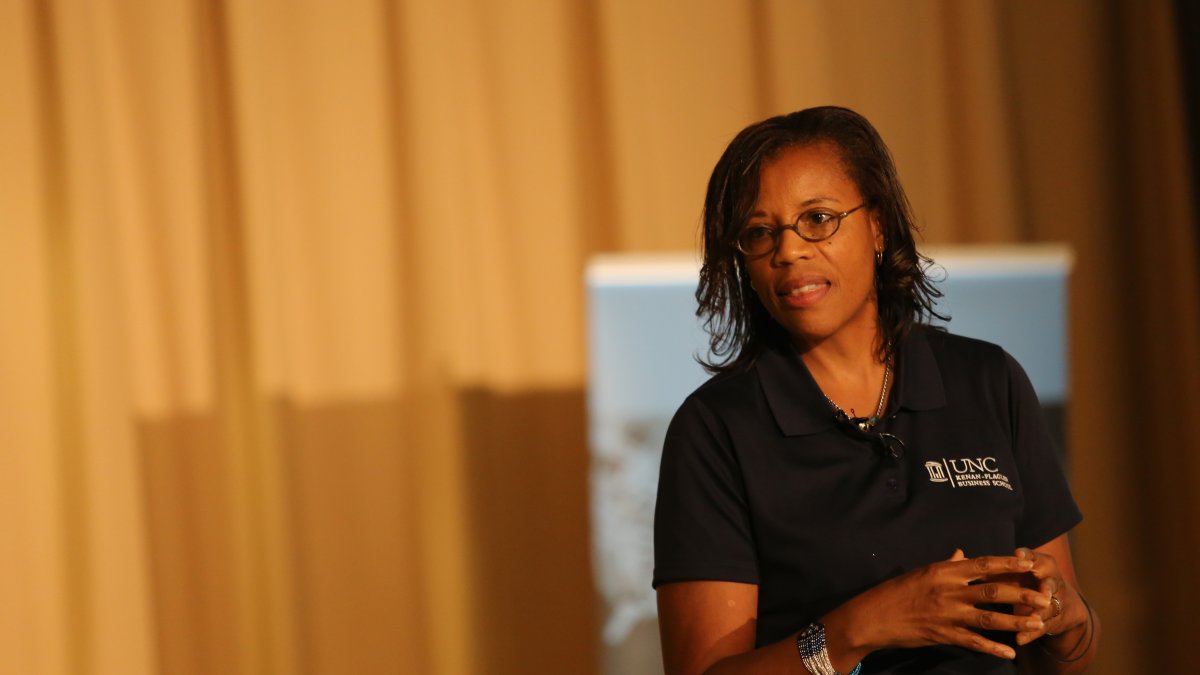Stroman discusses business of sport at season-opening Tar Heel Tailgate Talk
Deborah Stroman of the Frank Hawkins Kenan Institute of Private Enterprise kicked-off the annual lecture series on Sept. 12.

Franklin Street’s sidewalks were packed with fans wearing Carolina blue Saturday afternoon in anticipation of Tar Heels’ football home opener against North Carolina A&T.
But what would the streets have looked like if Carolina didn’t have a sports program?
Determining the impact of sports on the state of North Carolina is at the core of Deborah Stroman’s work and a topic she discussed at Saturday’s Tar Heel Tailgate Talk.
“Sport has great economic impact,” said Stroman, director of sports entrepreneurship and community engagement at the Frank Hawkins Kenan Institute of Private Enterprise. “What would Chapel Hill be like if we didn’t have sport? What would Franklin Street look like?”
Stroman’s 30-minute lecture “The Business of Sport: Opportunities for Relationships and Revenue” was the first of this season’s Tar Heel Tailgate Talk series, which will be held before home games that start later than noon.
Talks are being held at the Sonja Haynes Stone Center for Black Culture and History, and the series will cover topics ranging from the invention of commercial sports to the delights of Southern tailgating. Bruce Cairns, chair of the faculty, introduces each speaker and facilitates a brief question and answer session following each talk.
“It’s a great opportunity for us to bring these two parts of our wonderful institution — our faculty and our students — together,” said Chancellor Carol L. Folt.
The goal of the series, Folt said, is to showcase the Carolina faculty who are teaching the students who compete for the University.
An expert in the business of sports with three decades of experience in entrepreneurship and the athletic industry, Stroman is also an adjunct associate professor of organizational behavior at the Kenan-Flagler Business School.
Stroman discussed the social and economic impact of the sports industry and what its $300 billion industry means for North Carolina. She also touched on what data analysis in marketing, ticketing, fan engagement and sport science tell about the industry.
From the ability to influence the economy to resolving racial tension and other conflicts, sports play a large role in our society, Stroman said.
“I’m a believer in the power of sport,” she said. “Sport matters and sport is definitely an agent of positive change. … It’s very important to think about how our community works with universities and professional sports for economic impact.”
Click here for video of Stroman’s Tailgate Talk.




